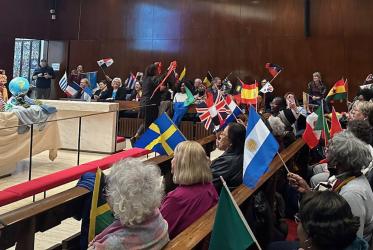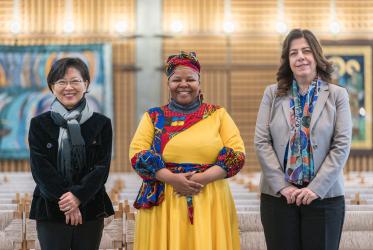Displaying 1 - 20 of 1355
Is health the same for all?
17 April 2024
WCC, WHO commemorate 50 years of collaboration
04 April 2024
Voice of churches vital during UN women’s rights talks
28 March 2024
Three WCC commissions elect vice moderators
08 March 2024
















